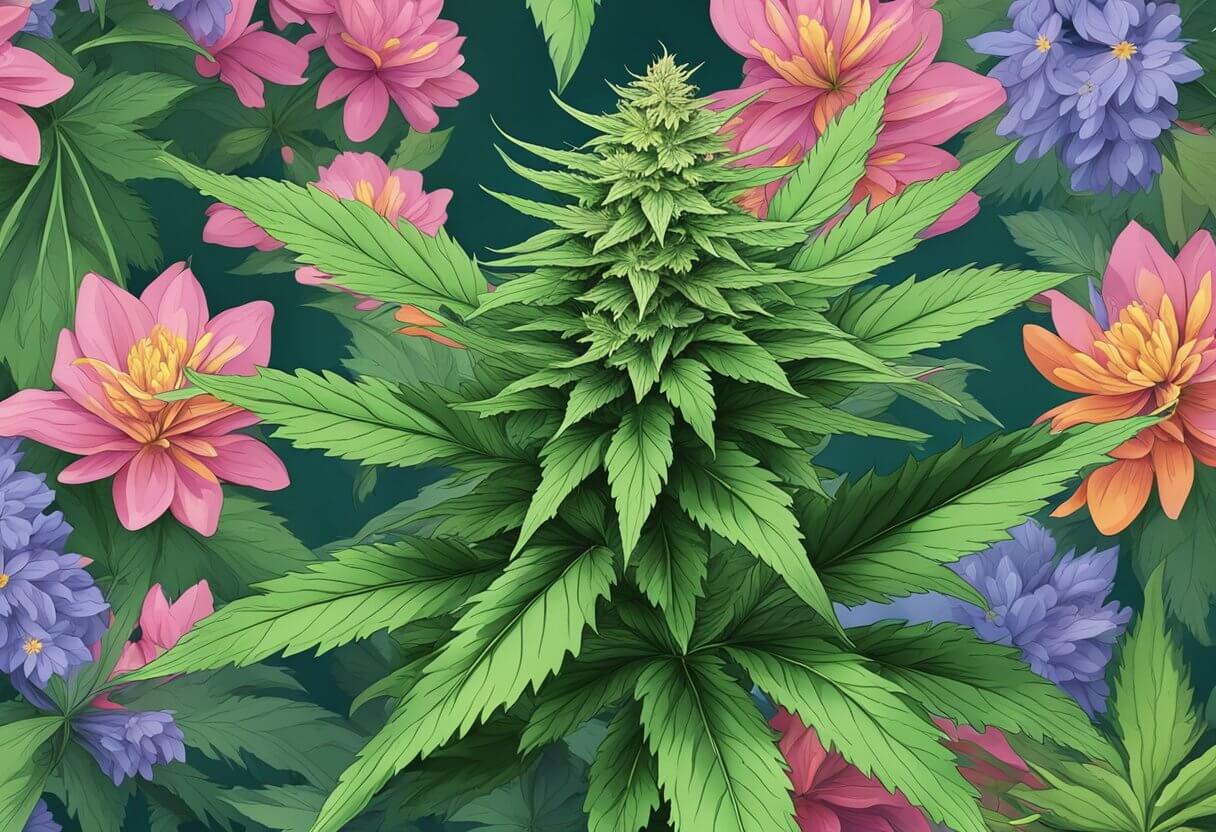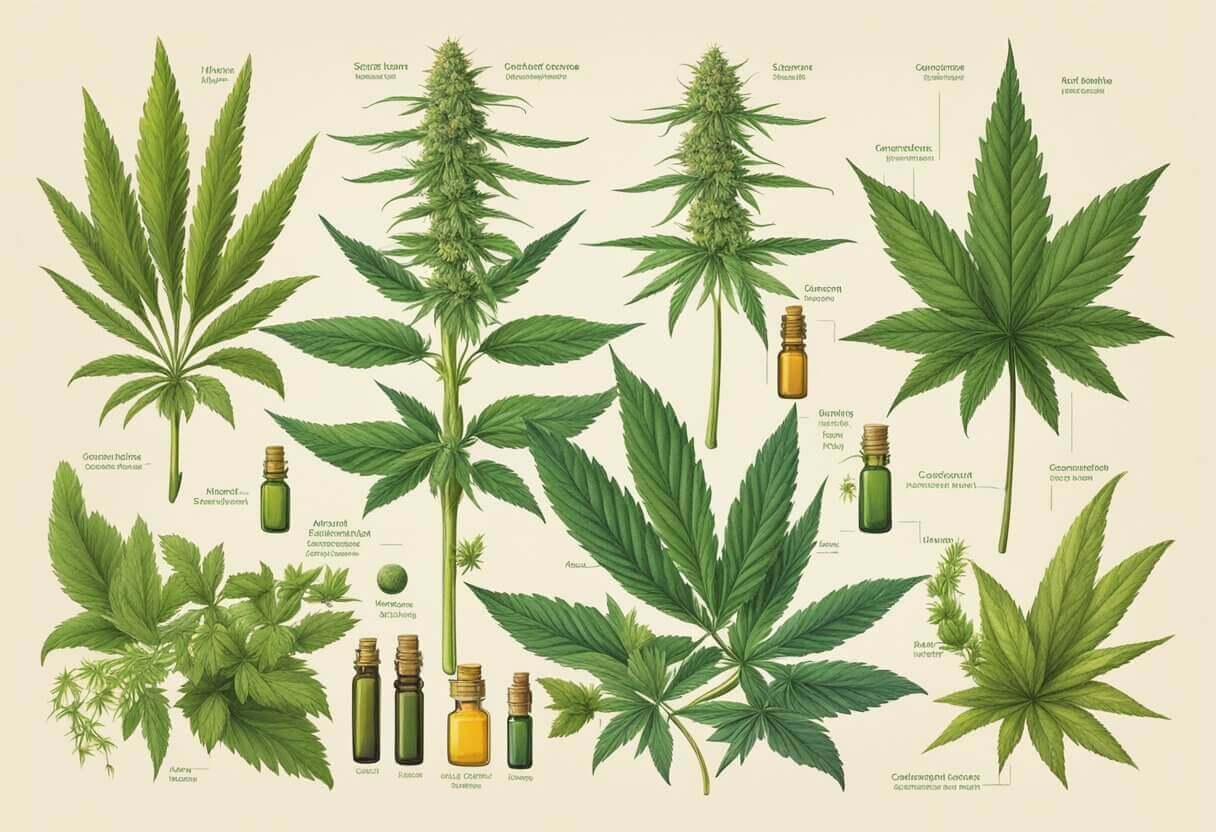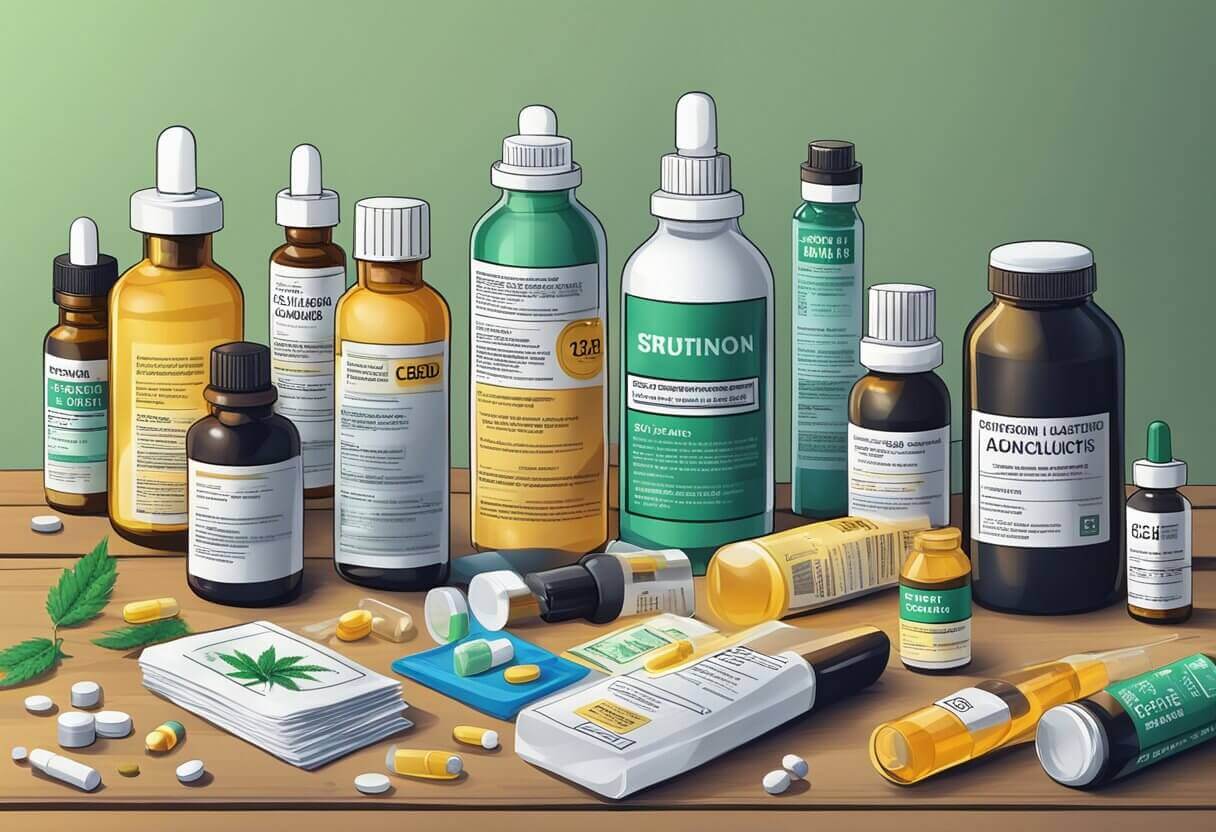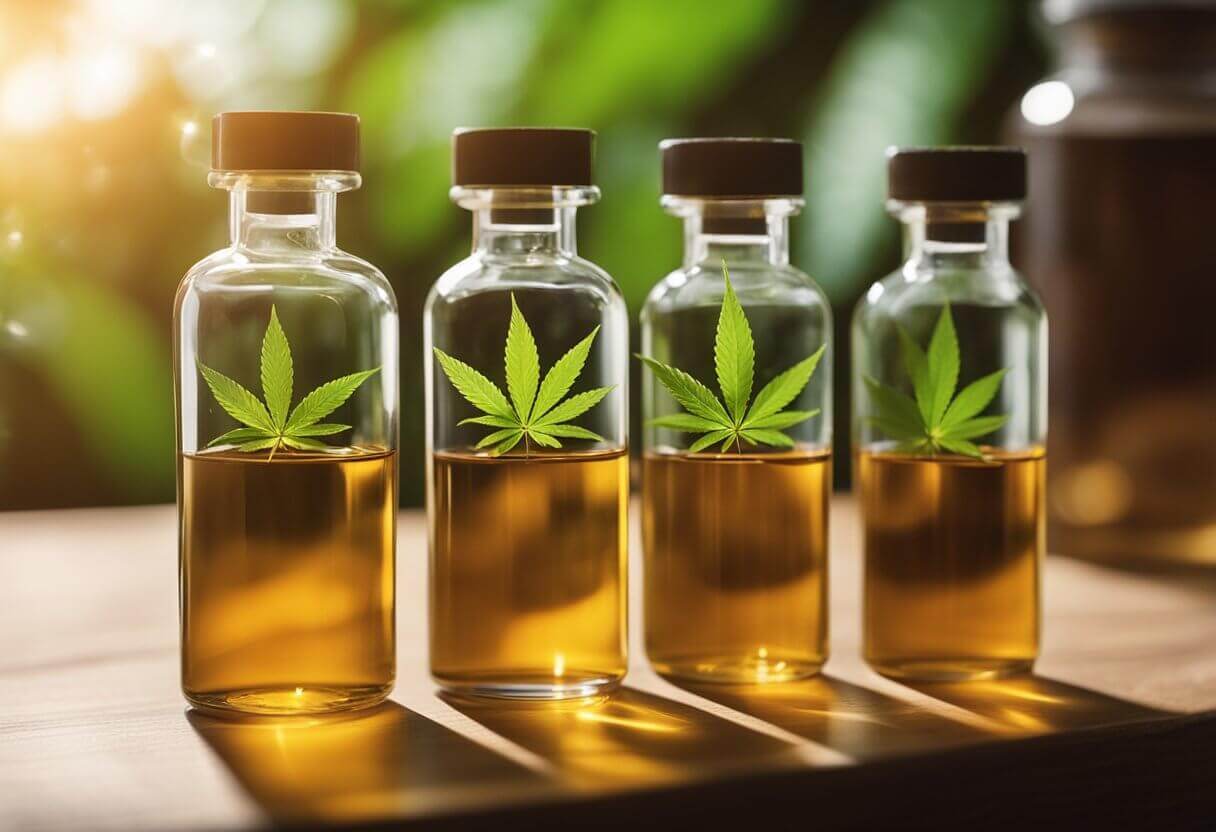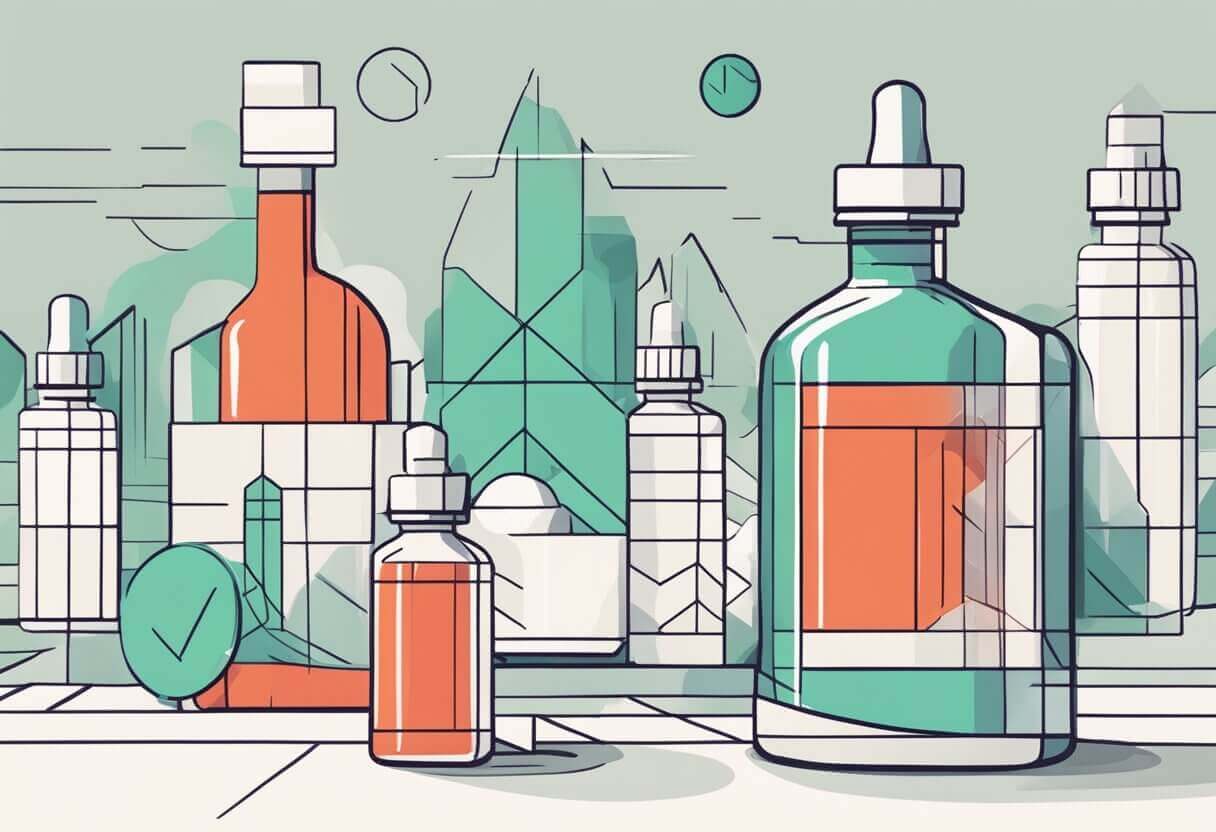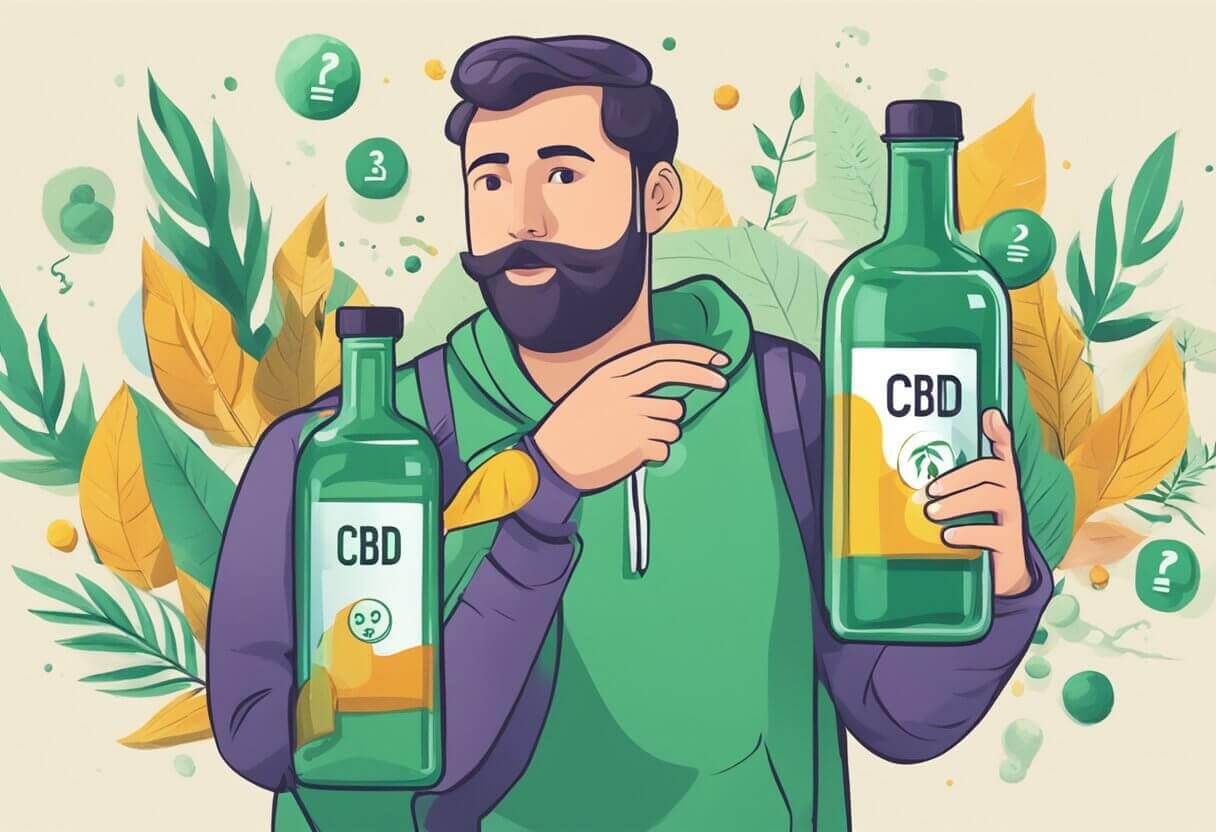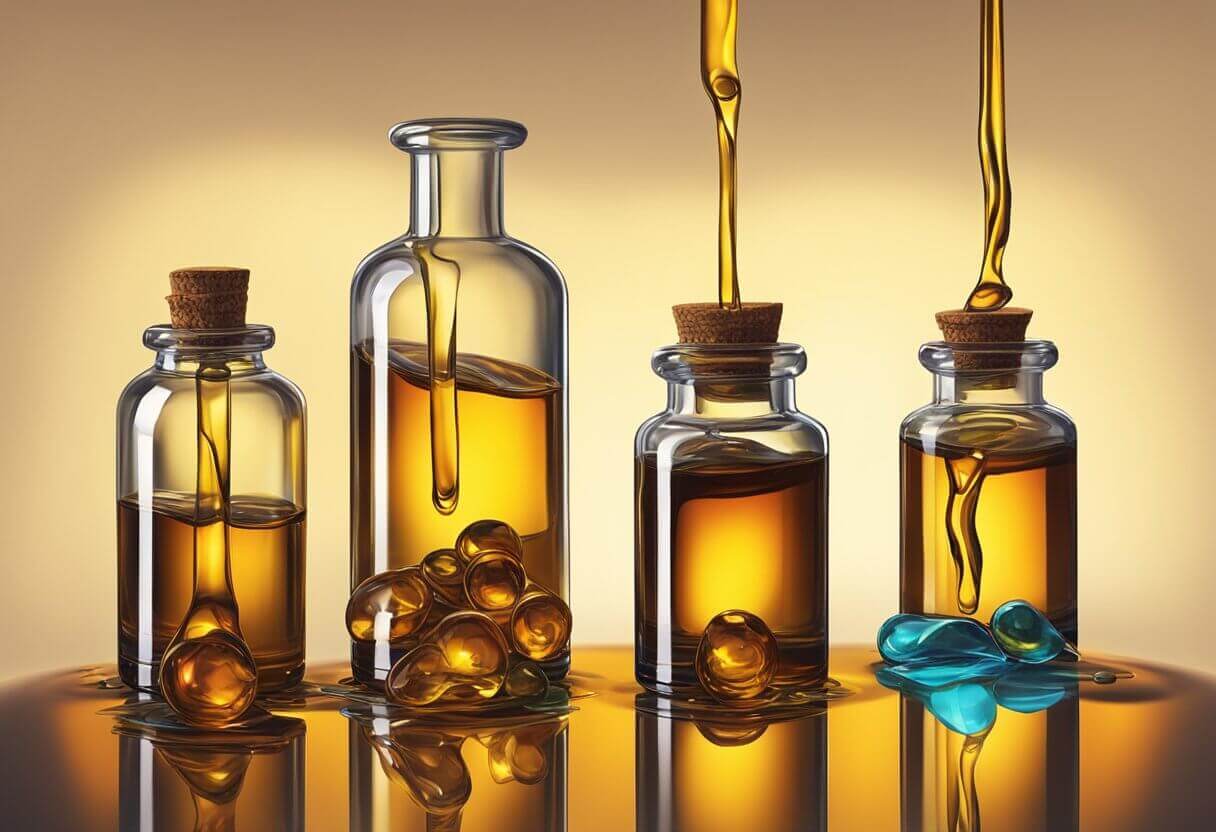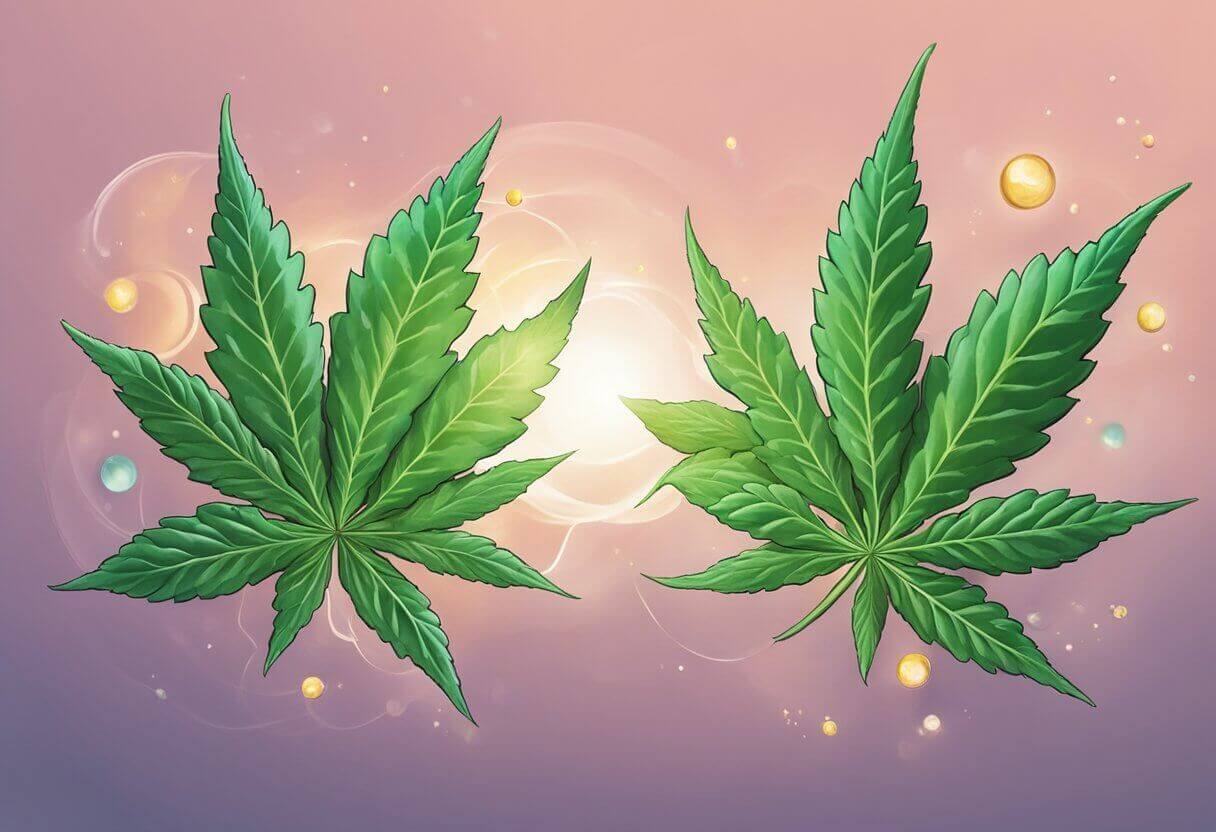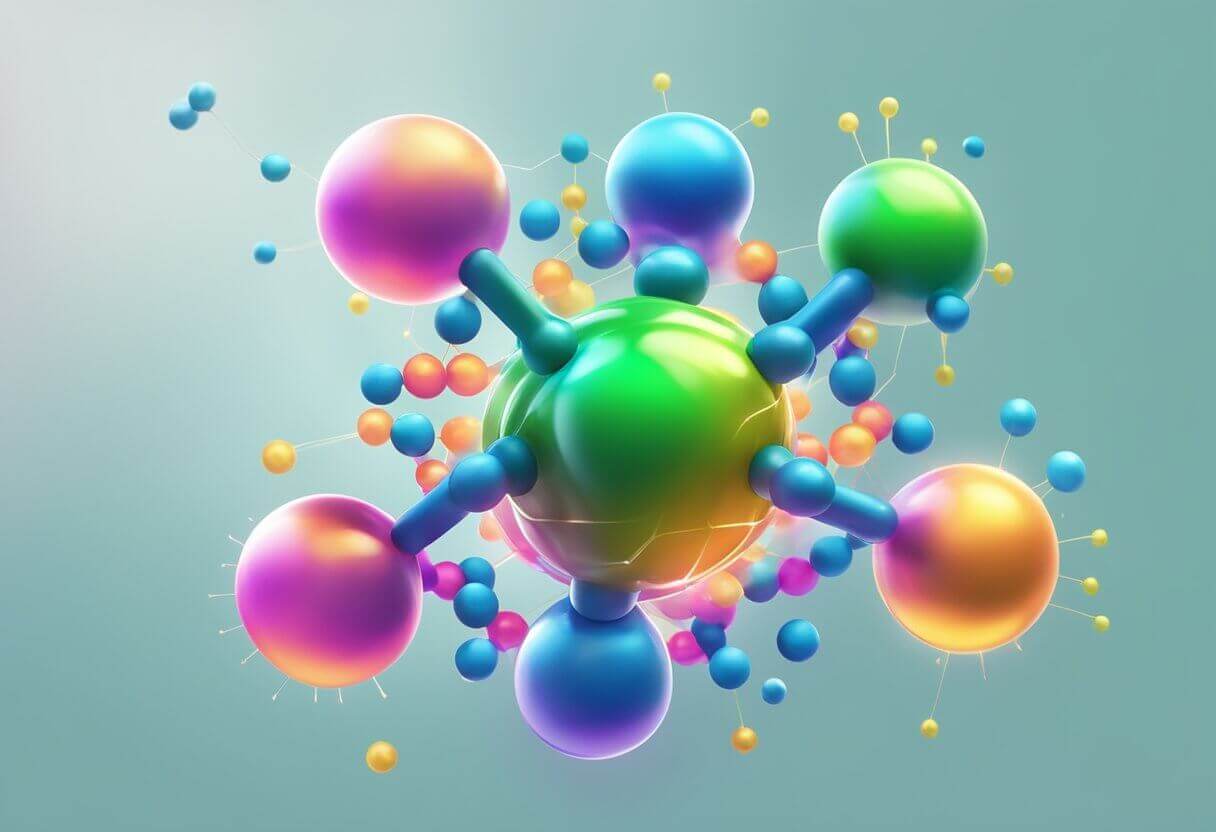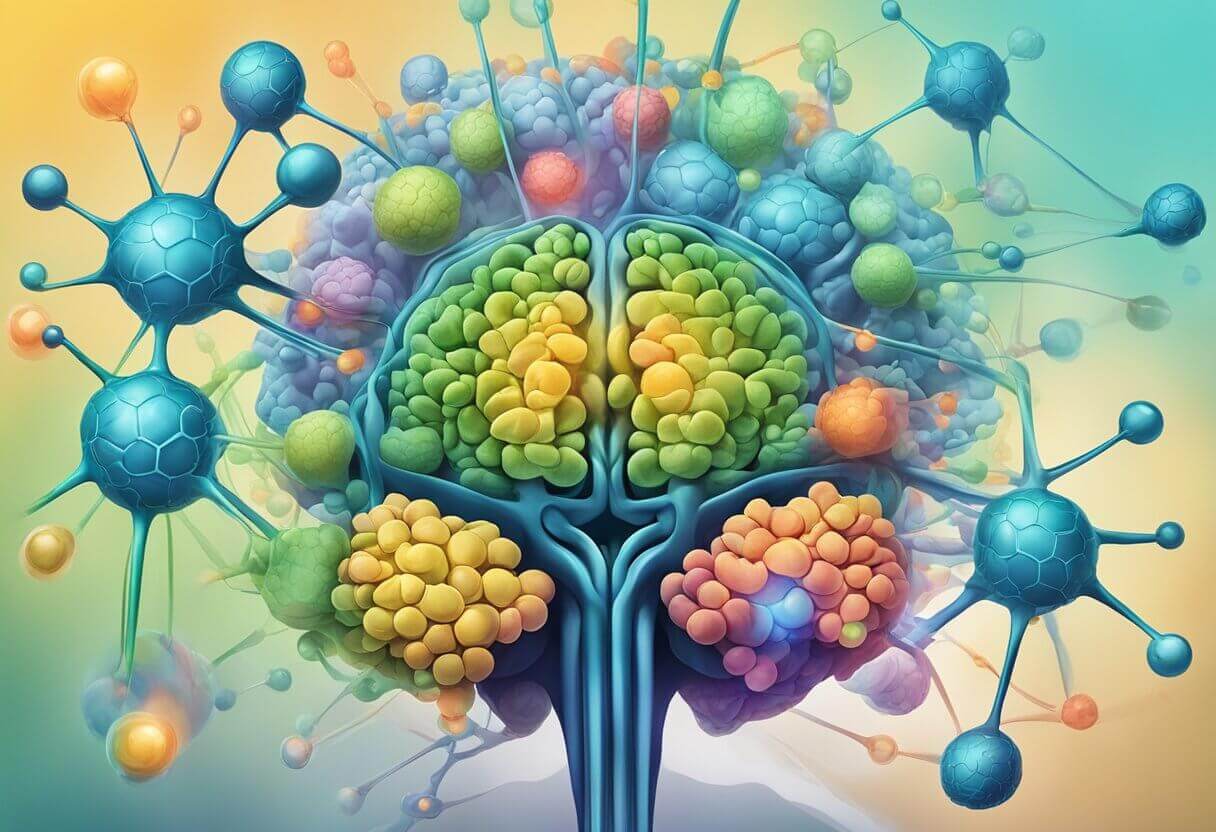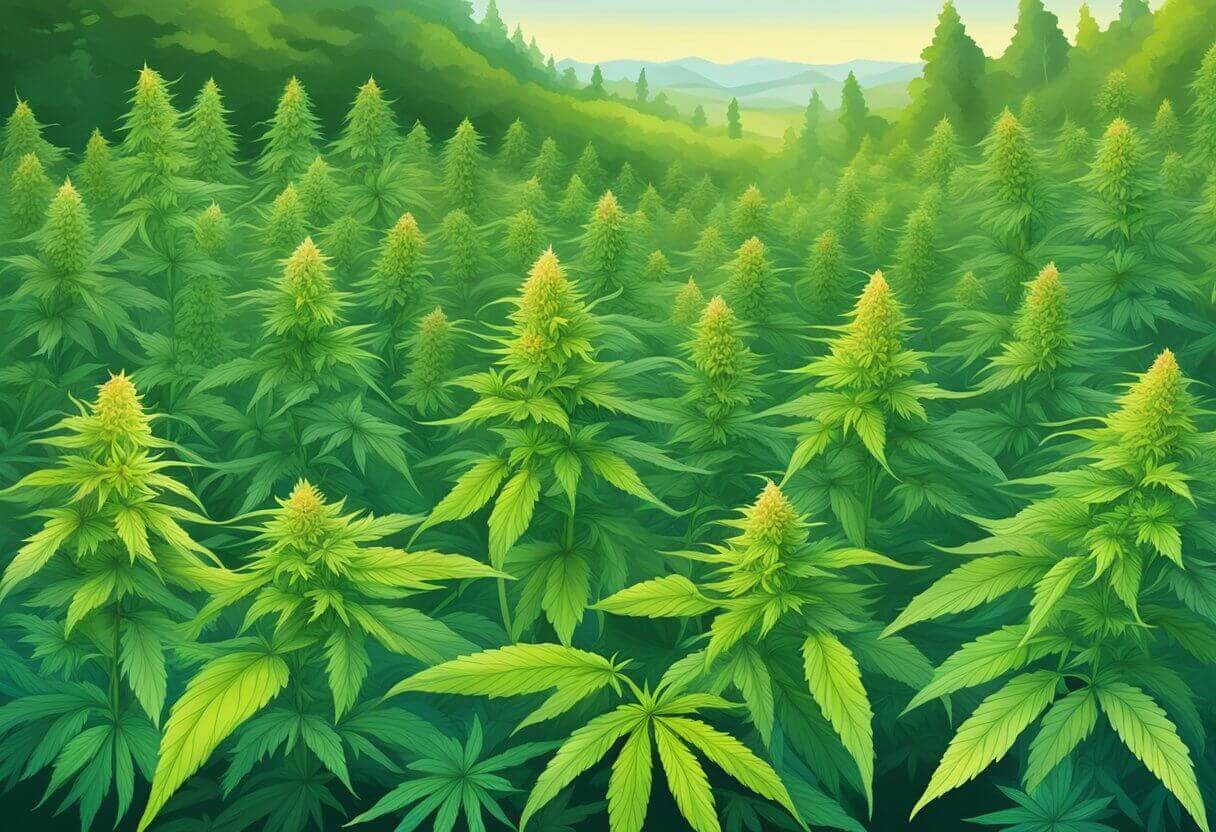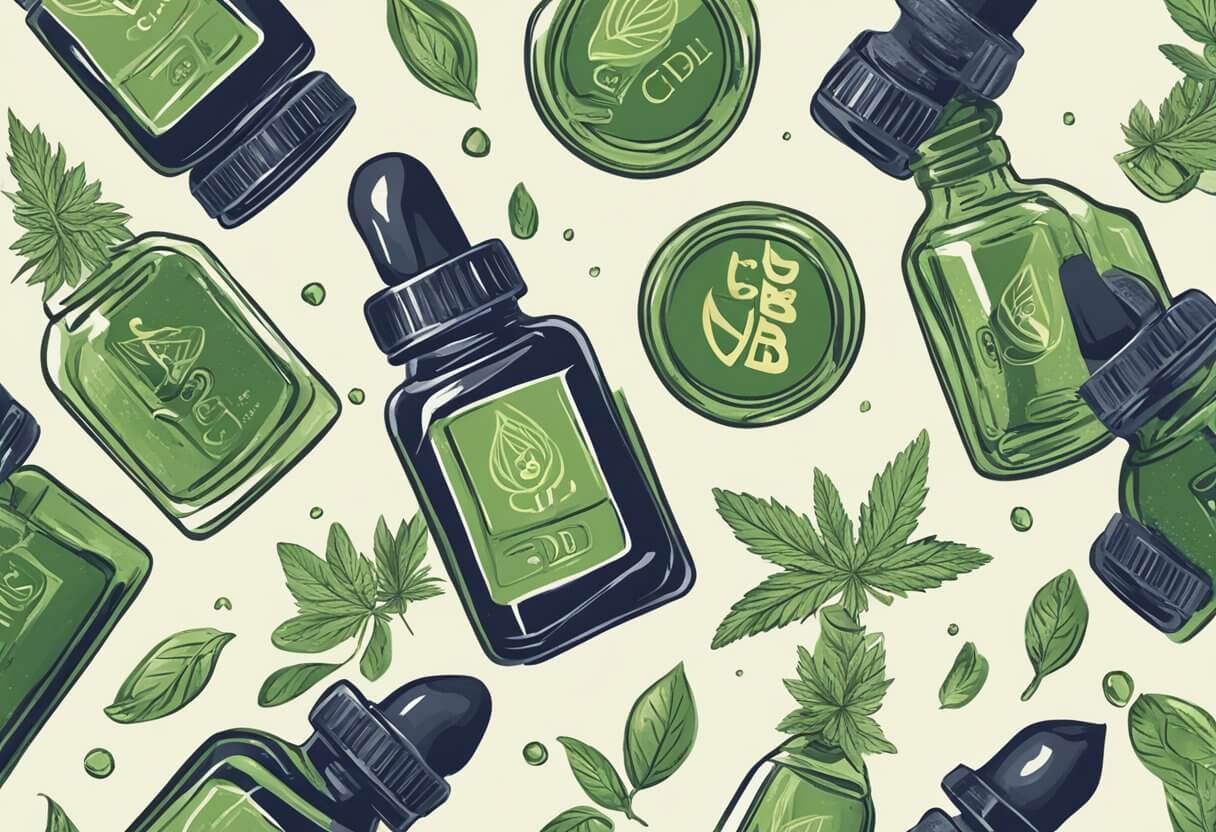Understanding Its Uses, Benefits, and Misconceptions
Disclaimer: The anecdotal benefits of CBD mentioned on this website are based on preliminary research and individual user experiences. All information presented here is not meant to substitute for or replace information from health care practitioners. Please click here for our full disclaimer, including side effects, FTC position, etc.
Cannabidiol, widely known as CBD, is a compound found in cannabis and hemp plants. Unlike its more notorious counterpart, THC, CBD does not produce a “high” sensation, making it an area of interest for those seeking therapeutic benefits without the psychoactive effects. Its popularity has skyrocketed, with a range of products, including oils, edibles, topicals, and more, claiming to relieve various ailments.
Given the surge of interest and use, consumers and researchers alike are diving deeper into CBD’s potential health benefits. Studies suggest it may play a role in managing conditions like chronic pain, anxiety, and seizures, though more research is needed to understand its effects and efficacy fully. CBD’s popularity has also raised important questions regarding its safety, appropriate dosages, and legality, making it a complex subject for potential users and regulators.
Key Takeaways
- CBD is a compound from cannabis that doesn’t cause a high.
- Potential health benefits are being explored, though research is ongoing.
- Safety, legality, and dosing of CBD are important considerations for users.
-
CBD Terpenes
Nature’s Secret Weapon for Chill Vibes Understanding CBD means understanding terpenes. CBD terpenes are aromatic compounds found naturally in cannabis plants. These fragrant molecules contribute to the distinctive scents and flavors of different cannabis strains. CBD terpenes work synergistically with cannabinoids to enhance the potential therapeutic effects of CBD products, a phenomenon known as the…
-
CBD Entourage Effect Explained
Maximizing Cannabis Benefits Picture a symphony orchestra, where each instrument plays a unique role in creating a beautiful, harmonious melody. Just as the string section, woodwinds, brass, and percussion come together to produce a rich, full sound, the various compounds in the cannabis plant work in concert to enhance its therapeutic potential. This fascinating phenomenon,…
-
CBD and Drug Interactions
What You Need to Know The popularity of cannabidiol (CBD) continues to grow, as does the conversation around its safety. CBD is a non-psychoactive compound found in cannabis plants. It has been recognized for its potential therapeutic benefits, which have prompted many to incorporate it into their daily wellness routines. However, because it can alter…
-
Will CBD Make Me High?
Unraveling the Myth Cannabidiol, commonly known as CBD, is a non-psychoactive compound found in cannabis and hemp plants. There’s a common misconception that because CBD is associated with cannabis, it must cause a ‘high.’ However, CBD alone does not produce the intoxicating effects that its cousin, THC, is known for. Instead, it’s often lauded for…
-
Anecdotal Evidence vs FDA Approval
Understanding the Difference in Health Claims In the realm of medicine and drug approvals, the contrast between anecdotal evidence and rigorously reviewed FDA approval processes is stark. When it comes to exploring potential new treatments, personal accounts are often the starting point. Take CBD (Cannabidiol), for instance—many people have shared their experiences using this natural…
-
CBD Certificate of Analysis (COA): Your Quick Guide to Quality Assurance
When you buy a product that contains cannabidiol (CBD), you want to be sure that it is safe and effective for your health. The FDA does not regulate CBD products, so you can’t rely on their labels alone. That’s why you need a CBD Certificate of Analysis (COA). All Flourish + Live Well CBD products…
-
How Long Does CBD Stay in Your System: A Quick Guide
Are you curious about how long CBD stays in your system? One of our customers, we’ll call him John S., recently started using CBD oil to help manage his anxiety. While he found it to be incredibly helpful, he wanted to know the answer to the question, “How long does CBD stay in your system?”…
-
Who Should Not Use CBD? Uncovering Potential Risks and Interactions
Cannabidiol, commonly known as CBD, has risen in popularity as a supplement for a variety of health and wellness claims. It’s found in numerous products, from oils and tinctures to edibles and topical creams. While CBD is generally considered safe for many people and has potential health benefits, it’s not suitable for everyone. There are…
-
Side Effects of CBD: What You Should Really Expect
Cannabidiol, commonly known as CBD, is a compound found in cannabis and hemp plants. Its popularity has surged due to its potential health benefits, including relief from pain, anxiety, and inflammation. Unlike its cousin THC, CBD is not psychoactive, which means it does not cause the ‘high’ associated with cannabis. As CBD products flood the…
-
What Are the Effects of CBD: Unraveling the Mystery
Cannabidiol, commonly known as CBD, is becoming ubiquitous, adorning shelves in the form of oils, capsules, creams, and even edibles. Touted for its therapeutic potential, CBD is derived from the hemp plant, a cousin of marijuana, but unlike its relative, CBD does not produce a “high.” Interest in CBD has skyrocketed, thanks to claims of…
-
CBD in Pregnancy: Unpacking the Safety and Risks
With the increasing popularity of cannabidiol (CBD) for its purported health benefits, many pregnant women are curious about its potential effects during pregnancy. CBD, a compound found in cannabis plants, is widely used to address issues like anxiety and chronic pain, but its use during pregnancy remains controversial. The Food and Drug Administration (FDA) has…
-
Is CBD Bad for You? Uncovering the Truth About Cannabidiol Safety
Cannabidiol, commonly known as CBD, has gained widespread attention for its potential therapeutic benefits and is extracted mainly from hemp-derived sources. It’s part of a group of compounds found in the cannabis plant, which has led many to question its effects on health and legality. Unlike THC, the psychoactive component in marijuana, CBD does not…
-
What Are the Dangers of CBD? Uncovering Potential Risks
Cannabidiol, commonly known as CBD, has become quite popular for its purported health benefits, ranging from pain relief to reducing anxiety. However, it’s important to approach this compound with a degree of caution, as research on its long-term effects is still ongoing. While many users report positive outcomes, CBD is not without its potential risks.…
-
CBD vs THC: Understanding the Differences and Effects
Cannabidiol (CBD) and tetrahydrocannabinol (THC) are the two primary cannabinoids found in the cannabis plant, which has species including both hemp and marijuana. Despite their origin from the same plants, CBD and THC differ significantly in their psychoactive effects and how they interact with the body and mind. CBD is renowned for not being psychoactive,…
-
CBD vs CBN: Unveiling the Differences and Benefits
Cannabidiol (CBD) and cannabinol (CBN) are two cannabinoids that have sparked significant interest due to their potential therapeutic benefits. Although they both come from the cannabis plant, they have different properties and effects. CBD, the more widely known of the two, is appreciated for its non-psychoactive effects, which means it doesn’t give the user a…
-
CBD vs CBDA: Comparing the Benefits and Differences
Cannabidiol (CBD) has gained considerable attention for its potential in easing symptoms such as anxiety, pain, and inflammation. Its lesser-known counterpart, cannabidiolic acid (CBDA), is the parent compound from which CBD originates in the cannabis plant. Often, CBDA has been overshadowed by CBD, but emerging research suggests that CBDA might hold its own unique benefits.…
-
CBD vs H4CBD: Unpacking the Differences and Benefits
Cannabidiol, commonly known as CBD, has made a significant impact on the wellness market due to its range of potential therapeutic benefits. Unlike its psychoactive cousin THC, CBD does not cause a high, which has contributed to its popularity for those seeking health benefits without the intoxicating effects. However, a relatively new player, H4CBD, is…
-
Does CBD Have Psychoactive Effects? Unraveling the Truth
Cannabidiol, commonly known as CBD, has garnered significant attention and use in various products, from oils to topical creams. Unlike its famous counterpart THC, the chemical responsible for most of marijuana’s psychological effects, CBD is not known to cause the high often associated with cannabis use. Extracted mainly from hemp—a variety of the Cannabis sativa…
-
CBD vs CBG: Exploring Key Differences and Benefits
Cannabidiol (CBD) and cannabigerol (CBG) are two cannabinoids found in the cannabis plant that have gained attention for their potential health benefits. CBD, known for its non-psychoactive properties, has become popular as a natural remedy for various ailments. CBG, on the other hand, is considered a minor cannabinoid and is less common in the plant.…
-
Hemp Oil vs CBD: A Guide to Their Differences
Hemp oil and CBD oil are both derived from the cannabis plant, but they are distinctly different products with unique properties and potential health benefits. Despite sharing a common plant origin, their extraction processes and sourced plant parts differ, resulting in varying chemical compositions and applications. Hemp oil, or hemp seed oil, comes from the…
-
What Does CBD Do? Exploring Its Effects and Benefits
Cannabidiol, commonly known as CBD, is a compound found in the cannabis plant. Unlike its cousin THC, CBD does not produce a psychoactive effect—meaning it won’t get you high. Instead, it’s known for its potential therapeutic benefits, with users and some early scientific studies suggesting that it could help with a variety of issues ranging…
-
How to Take CBD Oil
A Beginner’s Guide to Effective Usage As more people discover the potential benefits of CBD, many are left wondering how to incorporate this natural remedy into their daily routines. If you’re among the growing number of individuals curious about CBD but unsure where to begin, you’re not alone. With so much information available, it can…
